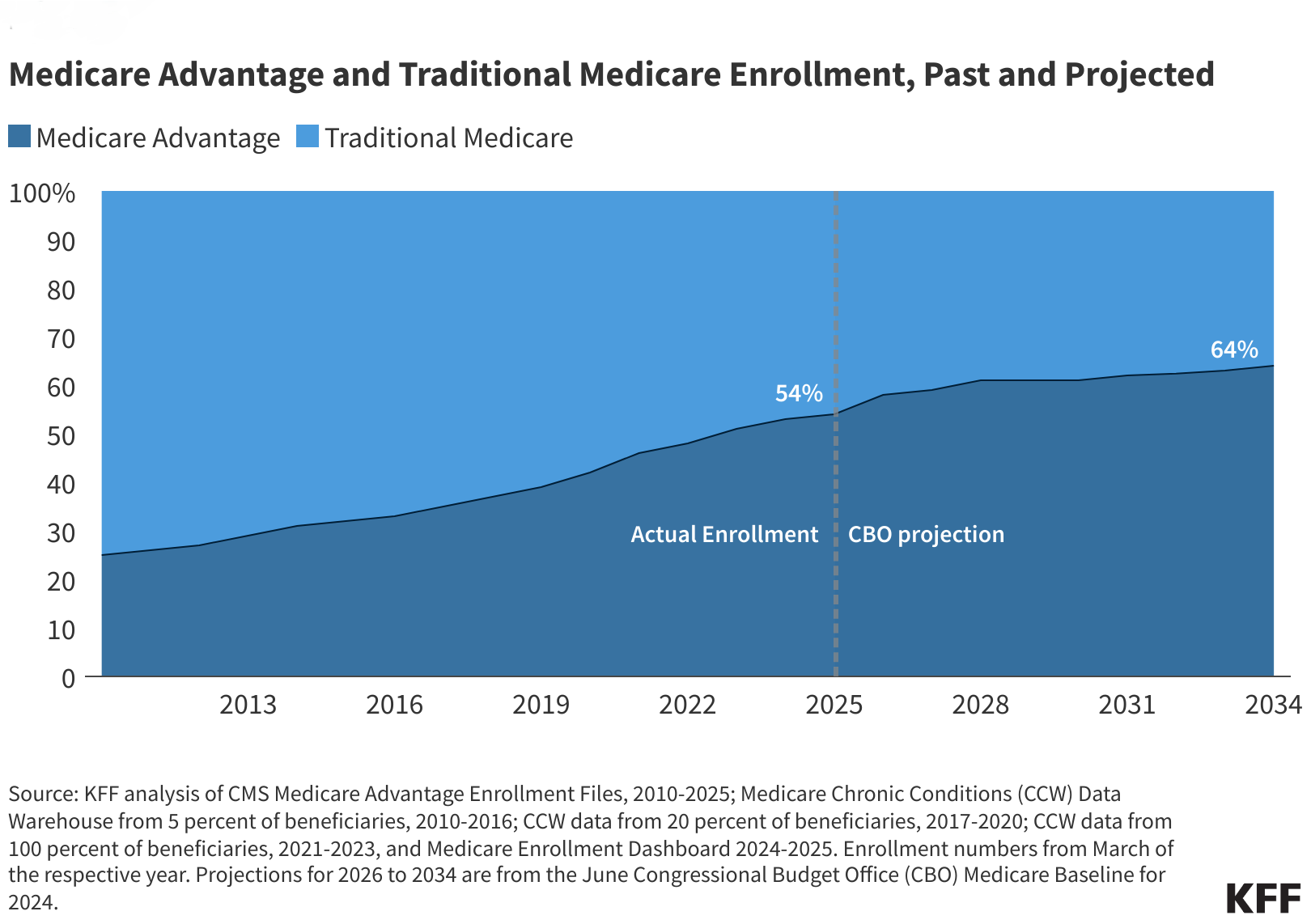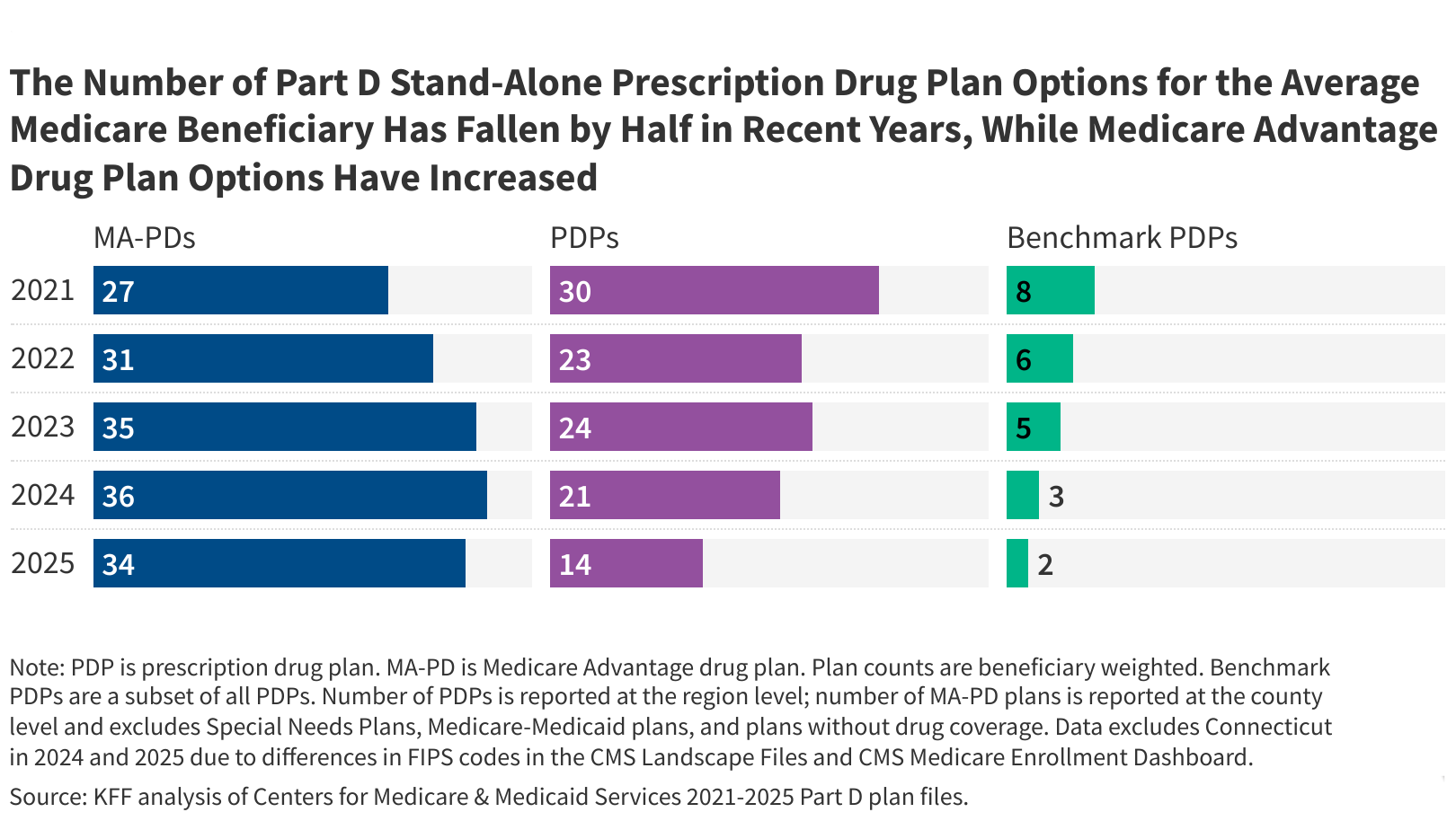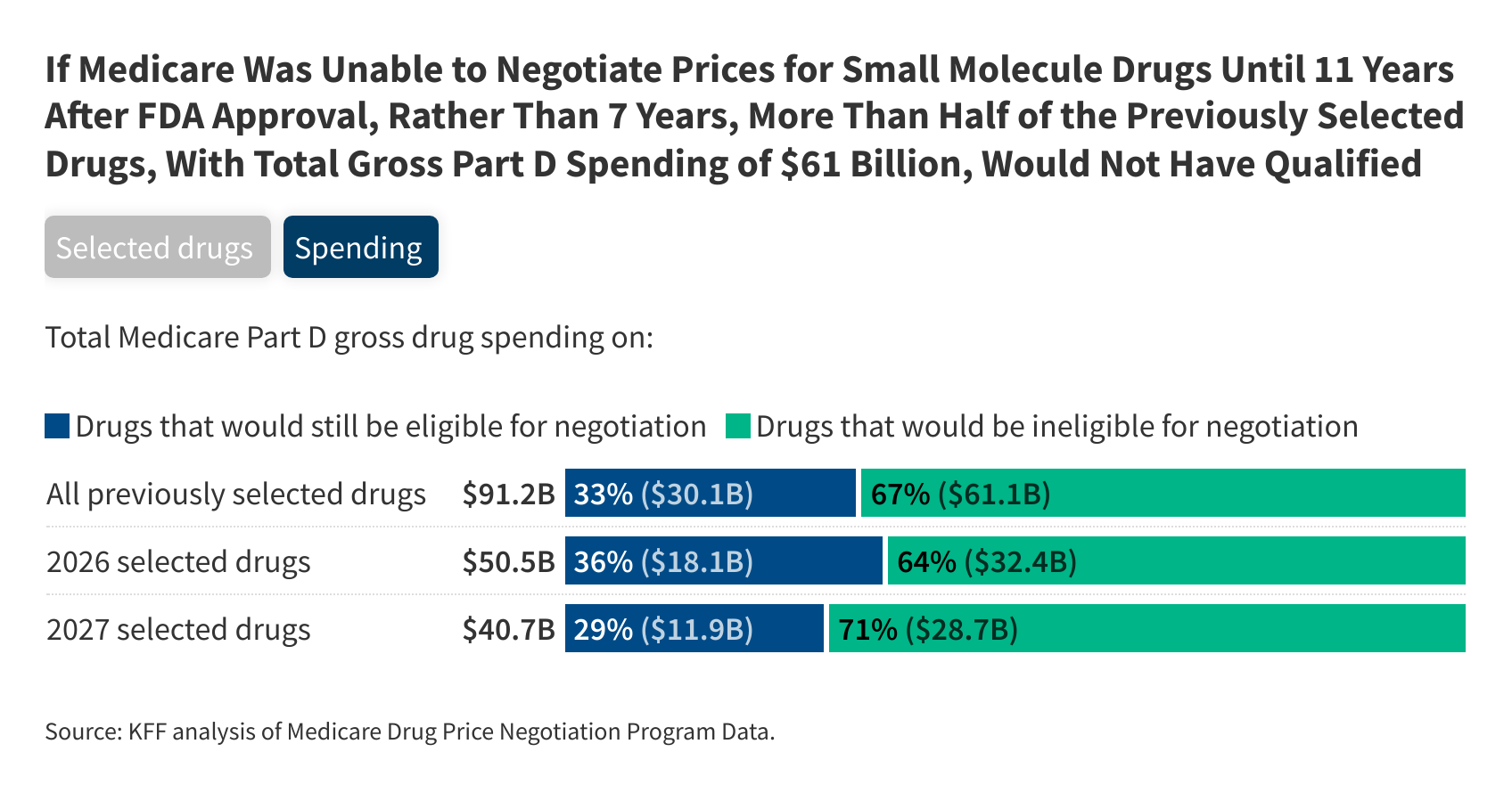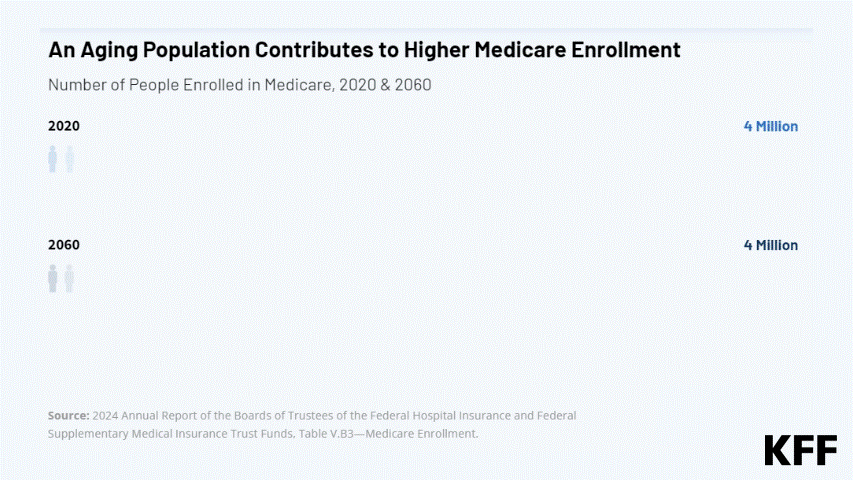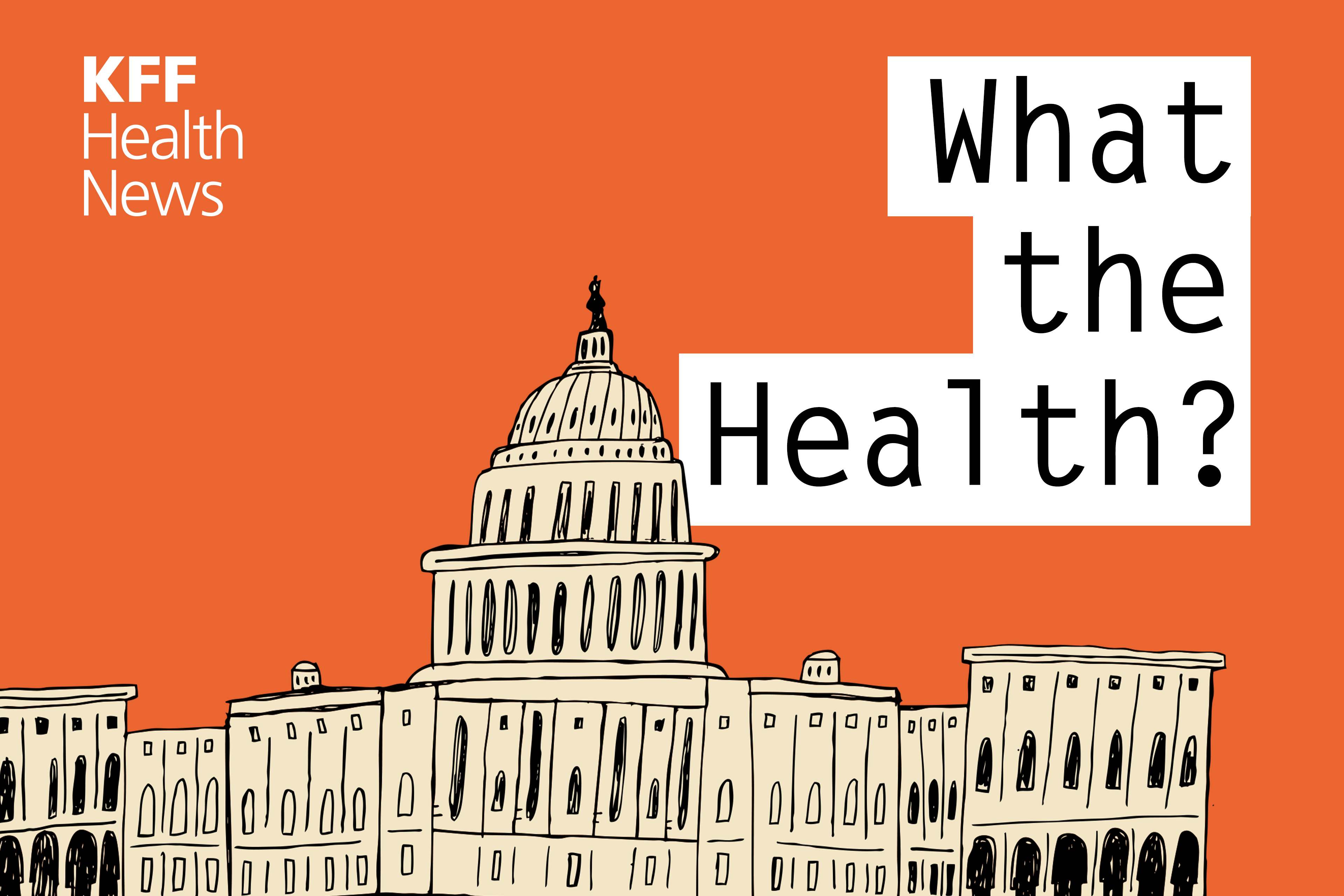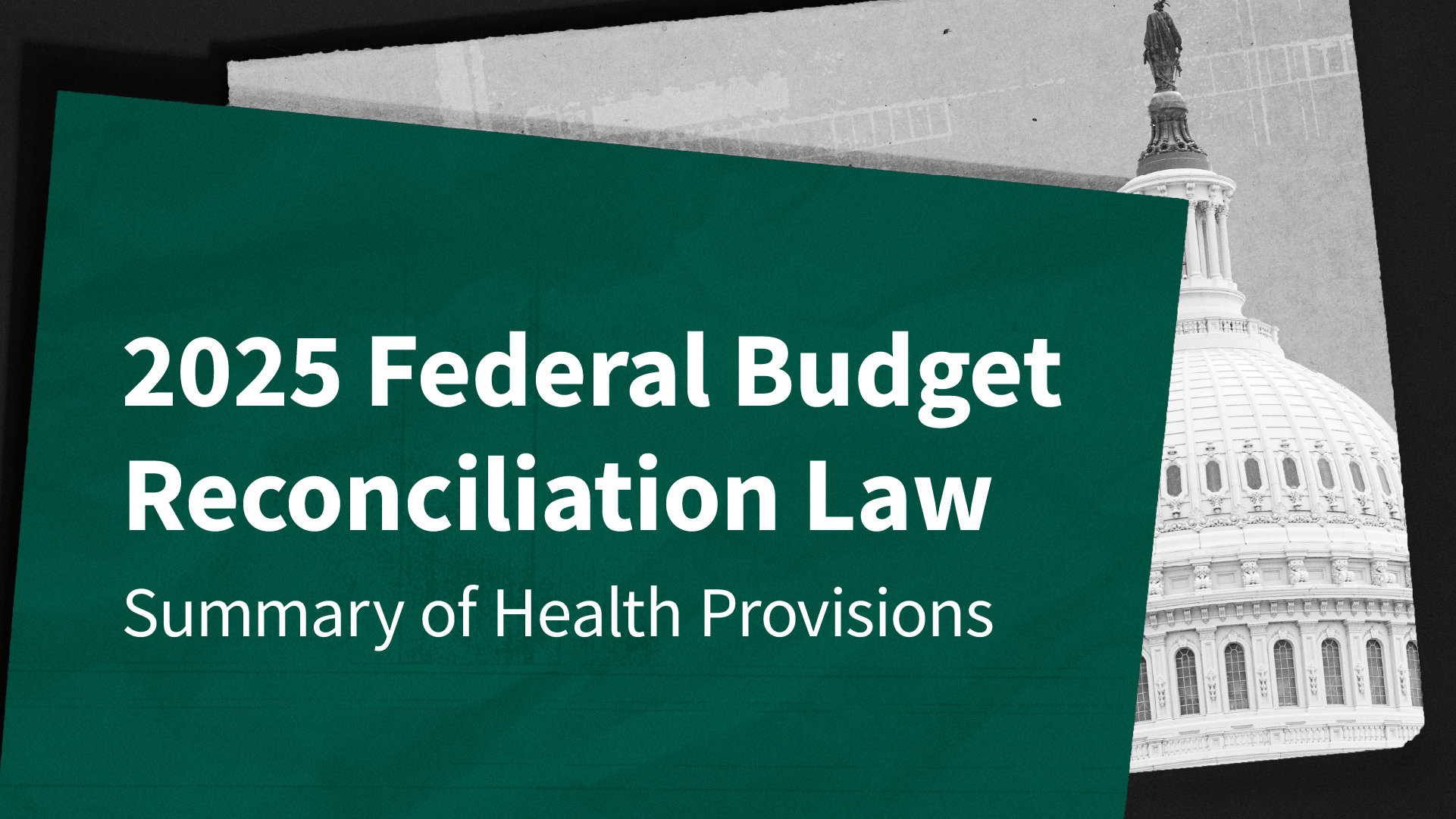
This summary provides background, description, budgetary impact and related information on the Medicare provisions in the 2025 federal budget reconciliation law, previously known as the "One Big Beautiful Bill."
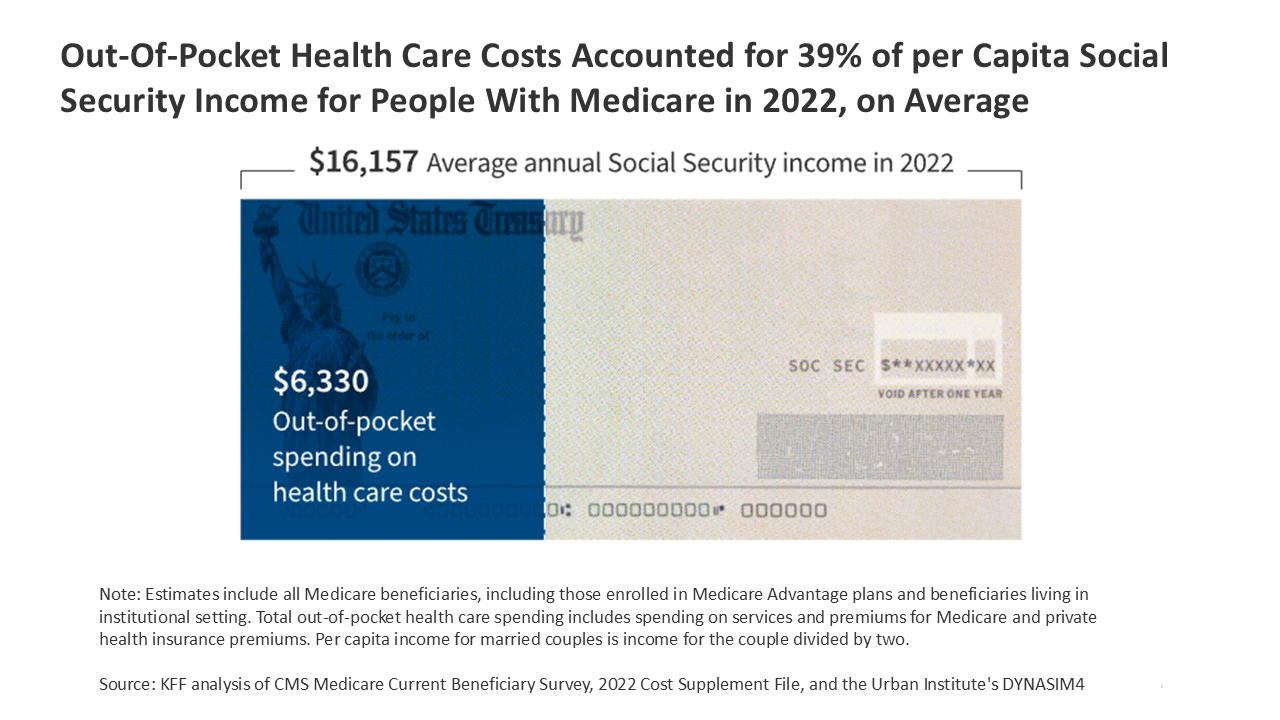
Out-of-pocket health care spending by Medicare beneficiaries accounted for 39% of Social Security income per person in 2022, on average. This brief analyzes out-of-pocket health care costs as a share of Social Security income and total income.
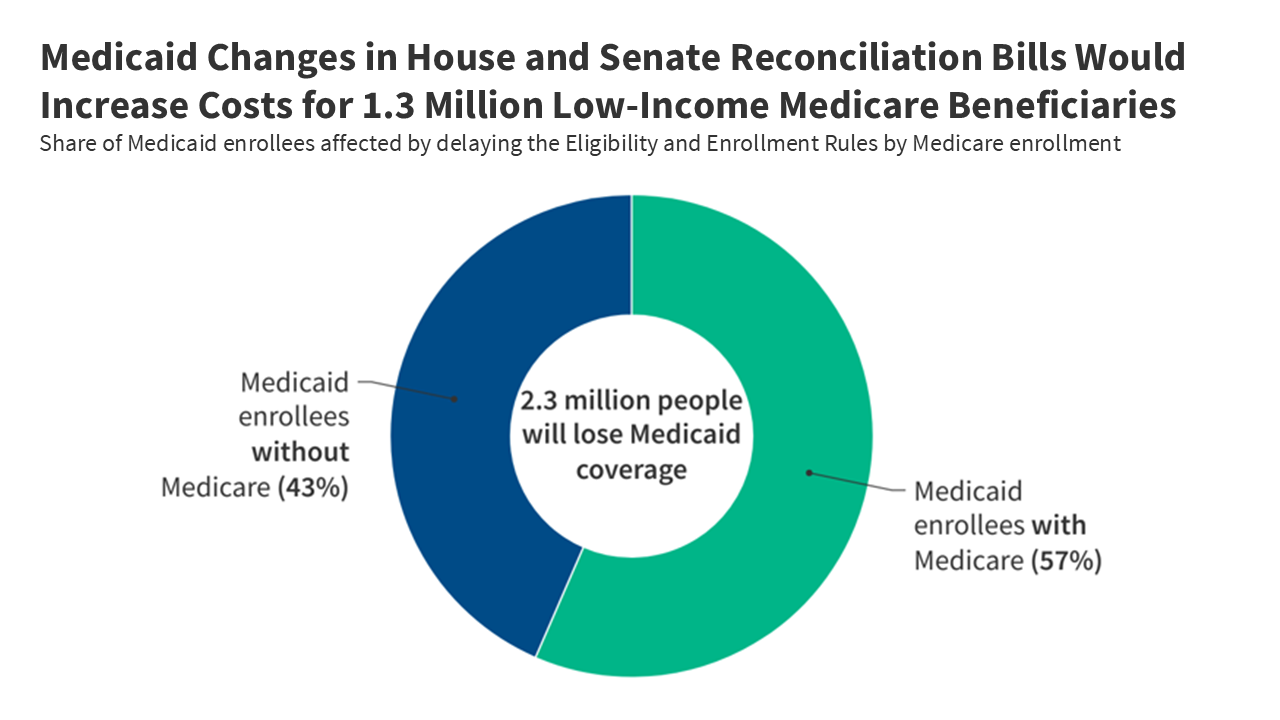
The CBO says 1.3 million Medicare beneficiaries would lose Medicaid coverage that lowers their health costs if the reconciliation bill becomes law.
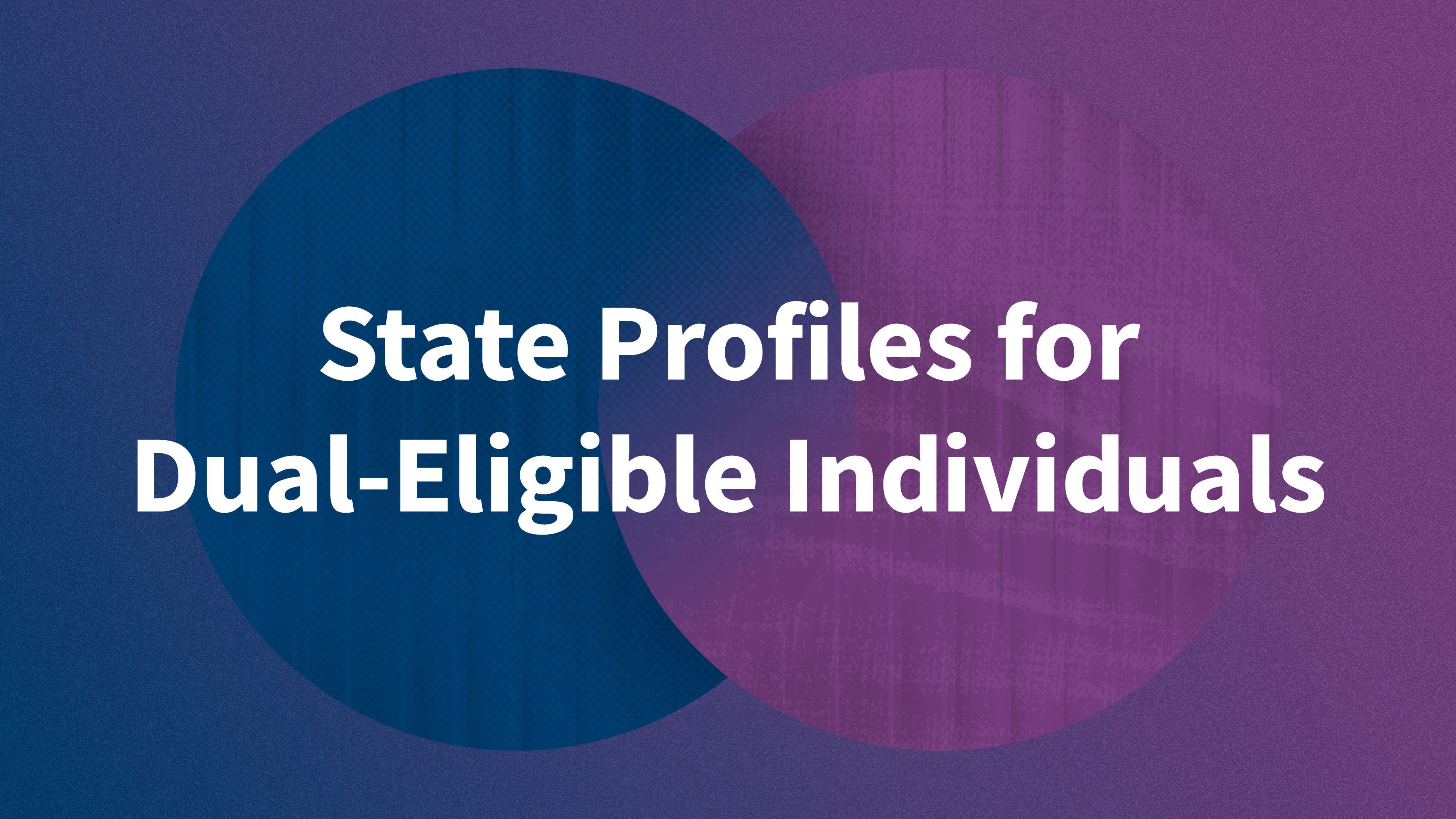
This new database offers the latest national and state data and statistics on dual-eligible individuals who receive their primary health insurance coverage through Medicare and some assistance from their state Medicaid program.

